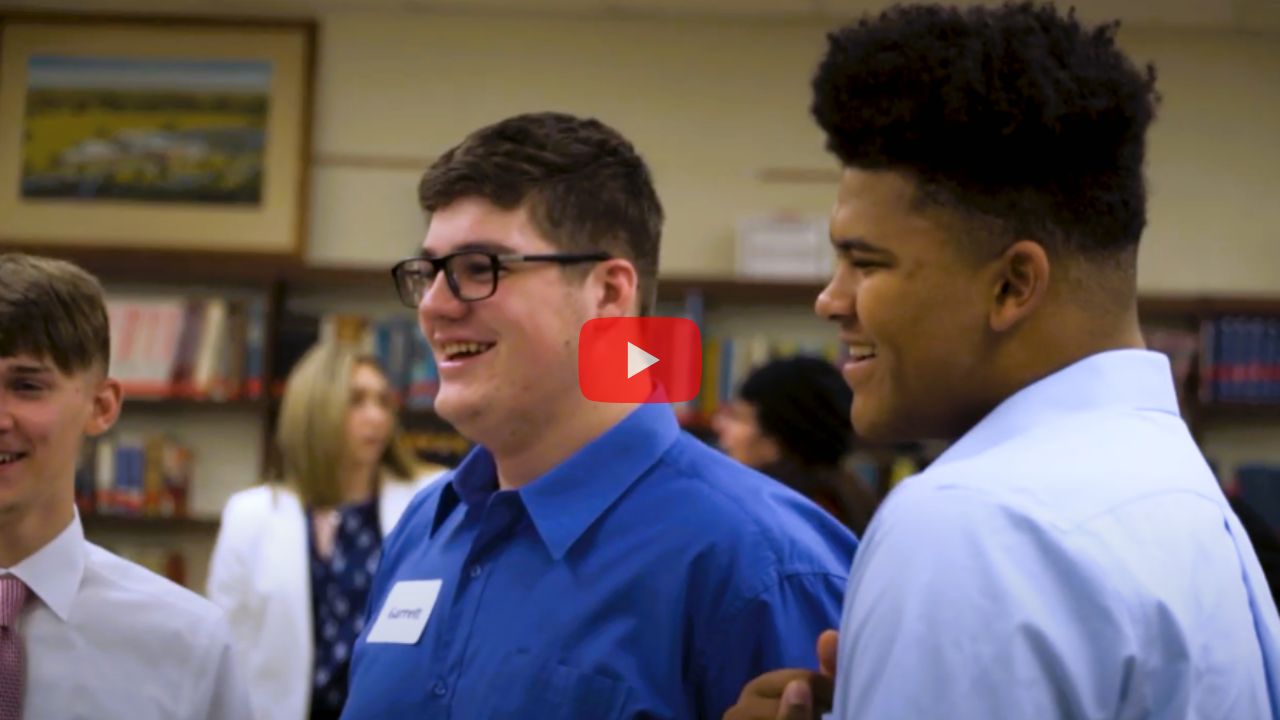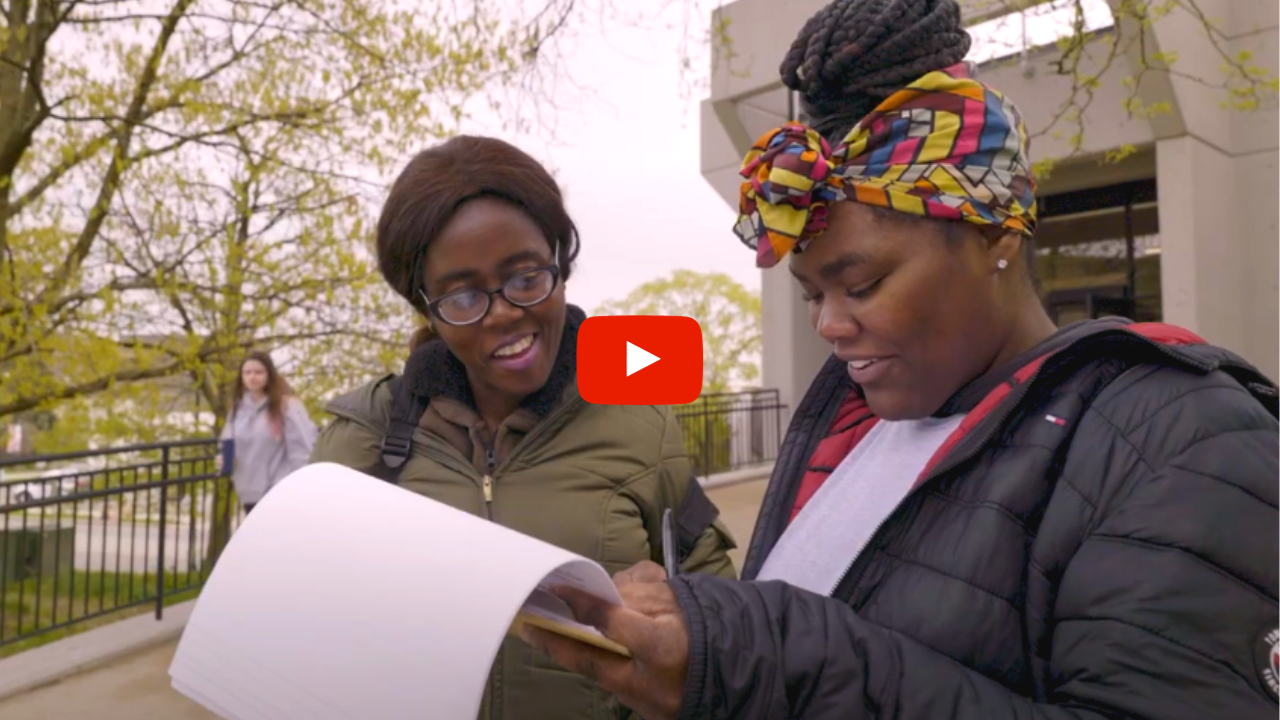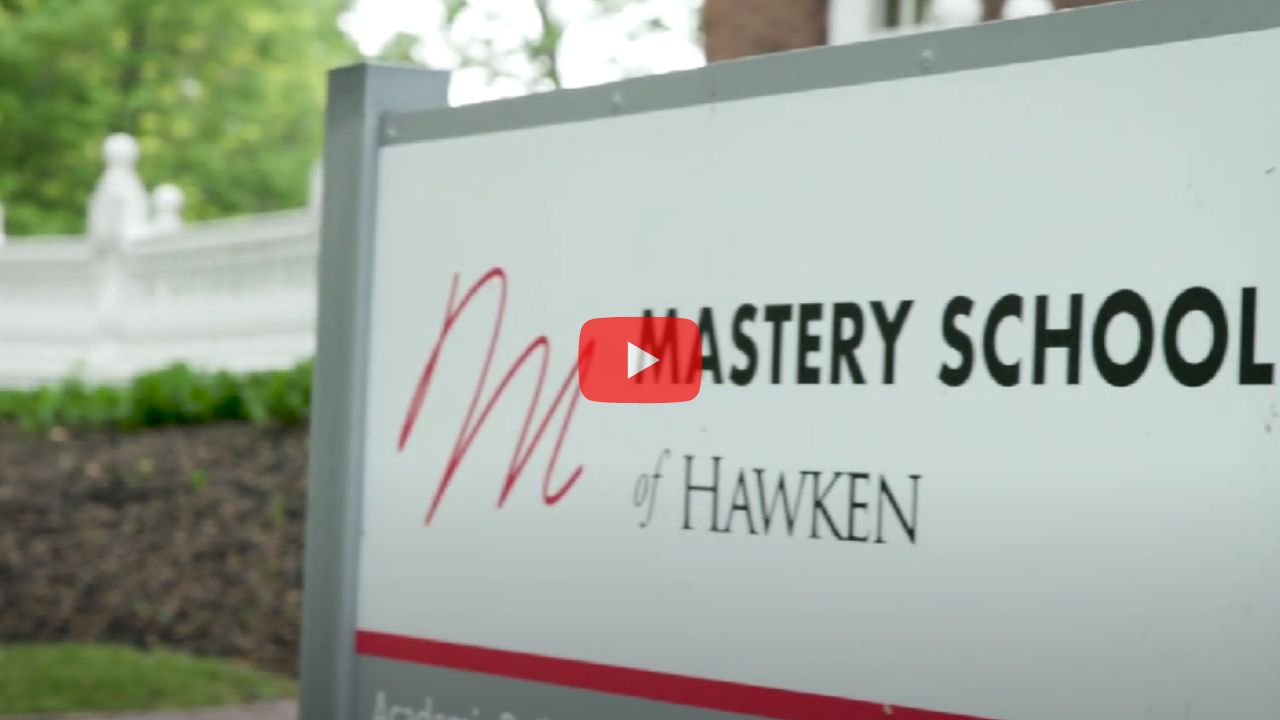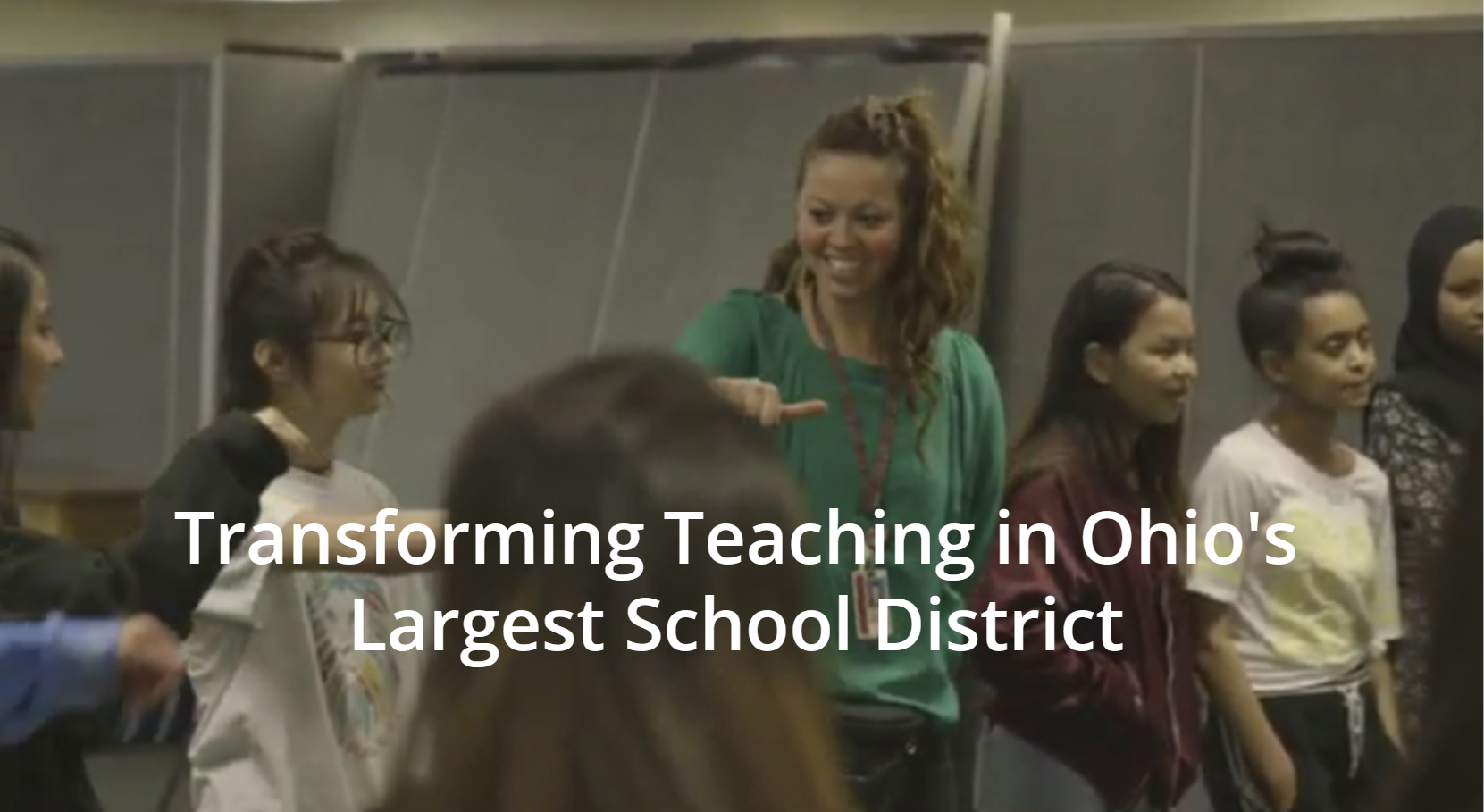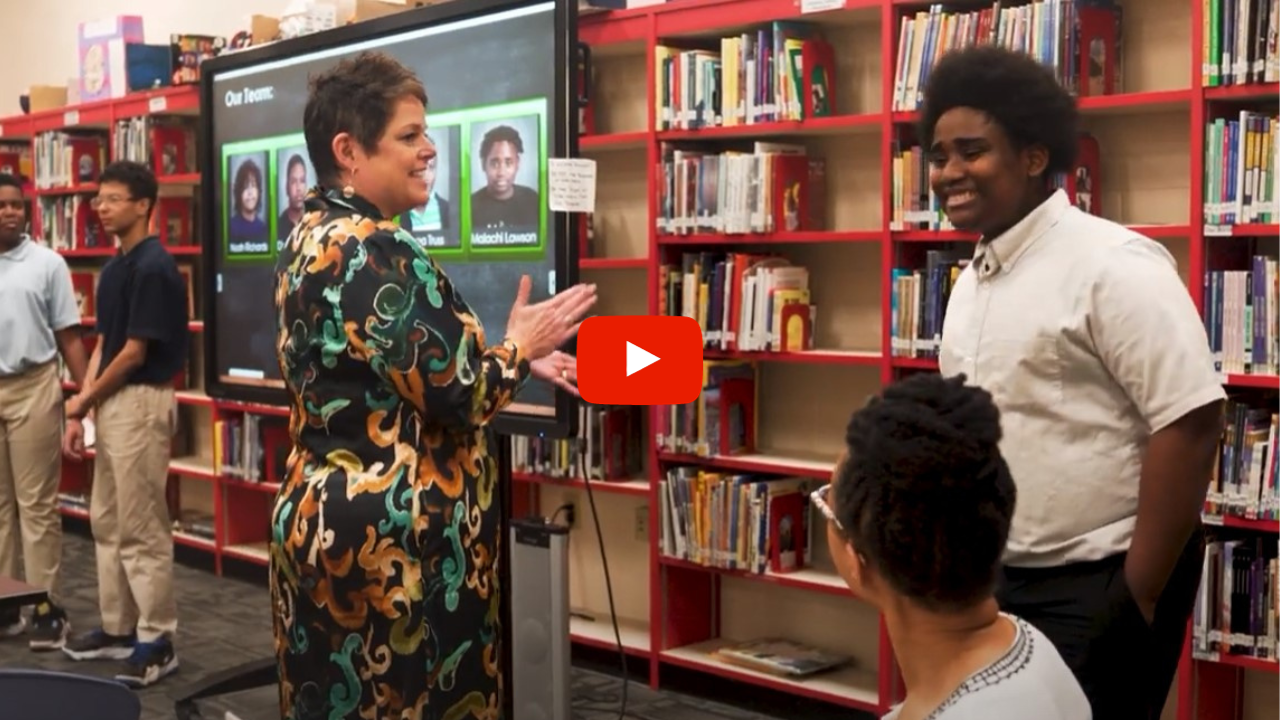In this episode, Doris and Alison discuss the themes that emerged from this season’s conversations with 62 entrepreneurial educators who have courageously ignited change in how we do school.
Do School Better: A Podcast for People Who Want to Transform Education - Listen to more episodes here
Alison: Hey, Doris.
Doris: Hey, Alison.
Alison: How are you doing?
Doris: I’m great.
Alison: Yeah, I’m feeling pretty great, too. Wrapping up Season 3…
Doris: Yeah. It’s been an incredible journey. What an adventure and what an amazing thing to have all these educators with such important and interesting and inspiring things to say and have their voices and their ideas captured. It’s been extraordinary.
Alison: I couldn’t agree more. I mean, I felt really honored, from a production side of this season to be able to highlight these educators in ways that…you know, they’re not usually getting that recognition.
Doris: Yeah, I don’t think teachers do, absolutely. We’ve talked about it that a lot. They don’t.
Alison: Right. They’re inside their classroom and they don’t have that kind of spotlight usually.
Doris: That’s right. And it was your idea to call this season the “Firestarters.” And I loved it when you first said it. I knew that was right and I love it even more now, because, really, that’s what everything we’re talking about is all about. It’s about how do you make system change when you have a system that is entirely wrong, which I believe is the case with our education system created in the 19th century. How do you make systems change?
And it starts with, whether it’s a school or a public school district or another country, it starts with a brave risk-taking person who says, “We need to do this in a completely different way and I’m willing to step off the ledge and take a huge risk to do something completely differently with students in a classroom, in a school.”
And people who aren’t in schools, I don’t think can really grasp how difficult that is to do. And, because there are people, educators, who are brave and courageous and will put themselves in harm’s way in order to do this, we have now schools all over the world that are changing their practice in ways that changes the lives for their students.
Alison: It’s powerful. And to see that pattern over and over where because they’re taking that risk because it’s creating results with their students, others in their school community start to open up to changing their practice, approaching things differently with different methods in their classrooms that can equally impact students.
Doris: That’s right. You know, it’s interesting. We are at the same time as we’ve been creating Season 3 and having all these conversations. We’ve also been creating a new organization, a nonprofit, where we’re doing this work. And there are organizations now all over the world and growing numbers who are organizing around this work, how do we help schools? How do we change the education system so that we’re better preparing kids?
But none of it works. None of that will make a dent if we don’t have teachers and administrators inside schools willing to take the risk and also put an incredible amount of energy and effort into trying something new and then building something new. And that’s really what we’ve had here. We’ve had conversation after conversation with educators, heads of schools, principals, teachers of all types in all kinds of schools, who are raising their hand to say, “I’ve got to do something differently here.”
And then we have teamed with them to help them so they have a starter kit, so they don’t have to build everything from scratch themselves, that’s really what we’re doing here. And then they take the starter kit, they try it out inside the class, inside the school, not with a spotlight, not creating a brand new big program, just try it out. And the minute they do, they see for themselves, “This is better. This is doing school better.”
And from there, they take it. It gives them even more courage to change over time everything, what they do and how they do it. And we’ve been seeing that these Firestarters, the ones, you know, I may have worked with, four years ago, like Jeremy in the last episode. And he comes in as a science teacher, and four years later, wow, listen to the program which is entirely DSST Public School’s program. That is their program that they’ve created and is growing like crazy. But it has to start with one educator somewhere inside a school who raises their hand and says, “No, I’m not doing this any more like this. We are not doing… I will put myself out there.”
I imagine that most of the people who listen to this podcast are educators themselves. And to the educators, when they hear us talking like this, they completely understand what I’m saying. For those not in education, I want to linger on this point because I don’t think there is an industry out there that is as change-averse and risk-averse in how it’s set up as the education industry. I really don’t.
And to make change from within and not only make change, but to use our favorite word, radically different, radically different approach, inside a system where all eyes and all operations and everything we do is set up to evaluate the students and you and the school using completely different measures and priorities, to stand up and say, “I’m gonna try something radically different and it doesn’t fit into any of the norms that this system has been guided by” is a really brave thing. They are Firestarters.
Alison: And it’s spreading. That, it’s contagious. We’ve seen it, that when one person is having results like that, the others in their institution feel more courageous, feel like it’s not as risky for them to start trying something new like that. And I’m always a firm believer in, kind of, that inside-out approach to change and to know that we’re having traction in the education industry is incredible. I mean, it’s so calcified, like we always say.
Doris: Well, and it’s because…the reason that happens that after one teacher or administrator does one pilot using these methods, it’s inevitable that one year, two years, three years later, it’s had a ripple effect. You know, well, like wildfire. The reason is, this is better. It’s just better, and it’s better for kids and there’s no arguing with it.
And, you know, as you hear me say so often, what teachers have in common is they all chose kids as their life’s work. So if you aren’t too jaded by having done it for too long inside the system, if you still have that little thing inside you which I think educators do, this is, “Oh yeah, kids. This is about kids.” Then when you implement a pilot and use these methods that are radically different and you see the results in your students, you can’t go back. And when others in the building see those students, they are compelled to try something different.
Alison: And we’ve seen it now. So we had, in this whole season, 62 educators represented who really embodied all that you’re talking about. They were across 20 states, 7 countries, impacting students in all those areas, which, I mean, it really is even more motivating. You know, to do this work is something that’s inspiring day-to-day for me and to start to see this now scaling in this way is more than I could have hoped for.
Doris: You know, we have kind of an amazing collection in Season 3. We’ve worked at having sort of a little bit of everything. But every story is different and if it were up to me, we would just continue to have these conversations. They’re extraordinary and they’re inspiring and they’re all different. Every teacher, every educator is themselves a designer. They’re designing the learning experience of their students. So everyone is unique. And as we continue to work with more and more educators in more and more countries in more and more schools, I wish we could just have these conversations all the time.
Every one of them is interesting. I’m never ever bored by hearing what these educators are doing and how they’re using these methods to then create as a starter, you know, as an igniter. And then how they’re shaping their programs themselves, it’s really cool.
And, you know, we’ve talked about this but it’s impossible to listen to this without understanding that we’re not just talking about transforming the kids. We’re talking about transforming the adults. The adults are getting transformed in beautiful ways. It’s like being in this system or in this line and you’ve just been told to get in line, keep marching, don’t get out of line, don’t talk, da da da, and then somebody says, “Wait, wait.” And they step out of line and they do their thing. They get to be themselves and they never go back in that line. And that’s really what the season, I think, is all about.
Alison: Yeah. I think there were some common themes that we saw that were to your point around taking risks and being brave. We heard people talking about this idea of Deschooling, not only the students, but themselves, to that point, where they felt like it was a rewiring of the way they were approaching their work and their impact.
We heard about this idea of leaders in their school really creating a space for them. You’ve been saying creating the conditions lately, which is a helpful way to put that, so that there’s space for these educators to be creative and come up with new types of programs.
Doris: And to experiment. It isn’t just organic, actually. What’s happening is you have to have the leadership of whether it’s a school or the district, but at some point, it’s the school building. You have to have the leadership in the school who has the will to create the conditions so that the experimenting and the innovating, you know, the now overused word, can happen. That’s really important for people to understand. It isn’t just about a teacher in a classroom deciding, “This is wrong. I want to do it differently.” That’s a necessary ingredient but without the leadership, it just doesn’t happen.
Alison: Absolutely true. And, I think, as well these schools, when you talk about, you know, innovation is a buzz word that a lot are using and, you know, same with skill building, and these are things that people are paying a lot of lip service to. But they are, in their implementation, falling short in a lot of ways. And so to really see how these educators, with the help of their leadership, have been embedding this inside their schools so that their students are learning the skills so that they’re coming out impacting their communities by solving problems with businesses or other community leaders. You know, I think it’s really powerful.
Doris: Yeah, I agree. And the methods are really important. Without having methods for educators to take and use, methods that have been developed over the course of years and literally, by now, thousands of students, everybody has to…
Alison: By you.
Doris: Well, but everybody has to start by scratch. And there are lots and lots of teachers who are starting from scratch and they’re doing fabulous things. But if we want to really create a new education system, we have to have some practices that have been developed over time with some shared principles and some shared approaches. It doesn’t mean every, like…You know, I don’t want an education system where there’s a single method or single practice. Of course not.
But what we’re talking about are some very basic needs of a teacher. When wanting to create something new, “How do I design the curriculum? What do I have to think about most when I do that? And then are there some things others have already developed that I can use to test drive this? And then what is the actual teaching of it? What does it look like minute to minute in the actual classroom with the kids? I’ve got four walls. I’ve got 35 kids in front of me. I know how to do what I’ve been doing that last 20 years. What the heck do I do with these 35 kids in my 45 minutes every day?”
And for this kind of innovation to happen well and in a healthy way, there has to be some methodology as a starting point that people can take advantage of. And that’s really a big part of what we’ve been doing, of course. But then, when you listen to these podcasts, they’re all completely different. They’re not all entrepreneurship classes.
They’re, in fact, as you know, this is a massive thing because six years ago, when I started entrepreneurship class, for years, I had such a hard time with the baggage of assumption. “Oh, it’s a marketing class.” “Oh, it’s about how to make money.” “Oh, it’s about…” No, this is about doing school differently. And when you listen to these podcasts, you can’t go into these podcasts thinking, “Oh, but this is okay for an entrepreneurship class or an extracurricular or whatever.”
You can’t listen to what these teachers have done inside core academic classes and what impact it’s had, the results. You can’t listen to that and come out the other side and say, “Yeah, it’s not rigorous. It’s a cool thing over here.” No, this is about changing the way we do school entirely.
Alison: This right. So to say the least, it has been an inspiring season and we hope you listeners found it useful. We are going to be taking a break here over the holidays but we will be back in the new year with Season 4. In the meantime, be courageous, take some risks and try to ignite some change at your school.
Doris: That’s right.


